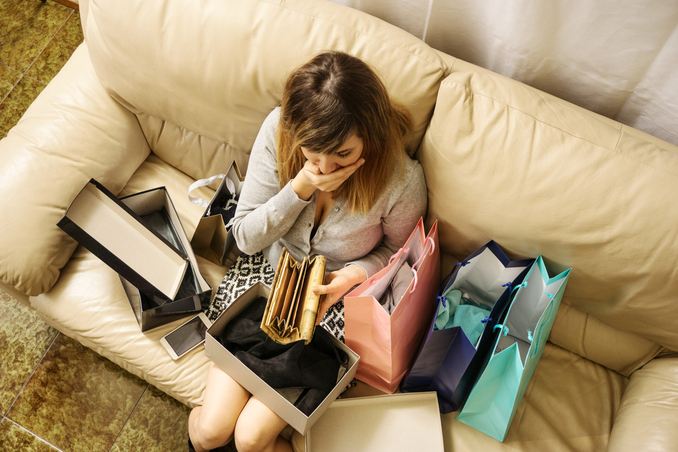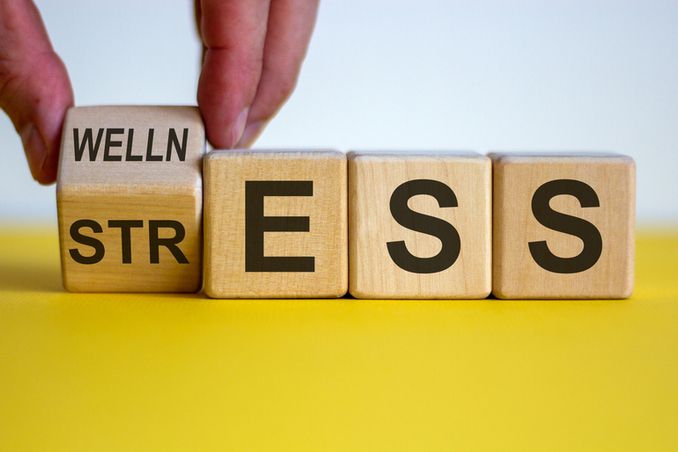What is a Shopping Addiction?
Table of Contents
- What is a Shopping Addiction?
- Is Shopping Addiction a Real Disorder?
- Symptoms of a Shopping Addiction
- Similarities Between Shopping Addiction and Other Addictions
- Shopping Addiction Help: Ways to Cope with Compulsion
- Benefits of Professional Shopping Addiction Help
- Can a Loved One or I Truly Overcome A Shopping Addiction?
- Seek Specialist Help Today!
An estimated 5.8 percent of Americans struggle with a shopping addiction at some point in their lives. Also known as compulsive shopping or compulsive buying disorder, this addiction is marked by an uncontrollable need to spend money even in the absence of financial means. While lots of people enjoy shopping and may even jokingly call themselves “shopaholics,” shopping addiction is a serious mental health disorder. It can lead to significant problems in almost every area of the affected individual’s life. With this in mind, we look at ways how to stop shopping addiction and prevent it from becoming a destructive influence in your life.
People who are addicted to shopping make purchases to boost their mood and avoid anxiety, depression, and other negative feelings. The behavior usually starts in early adulthood or the late teenage years. It often occurs along with other impulse control disorders, mood, and anxiety disorders, eating disorders, personality disorders, or substance use disorders.

Is Shopping Addiction a Real Disorder?
There is some debate about whether shopping can be an addictive practice. Compulsive shopping isn’t recognized in the Diagnostic and Statistical Manual of Mental Disorders, Fifth Edition (DSM-5). Also, the American Psychiatric Association (APA) does not officially recognize it as a distinct disorder.
Yet, shopping addiction isn’t a new concept, and you shouldn’t take it lightly. Compulsive shopping was included in psychiatric textbooks as far back as the early 20th century, and some professionals even recognized it in the early 19th century. In 2015, a group of researchers developed The Bergen Shopping Addiction Scale, which seeks to measure shopping addiction in the era of modern technology.
If you or someone you love is finding it hard to control your buying, you should seek out shopping addiction help despite the controversy. There are multiple treatment options and ways how to stop shopping addiction available, including shopping addiction counseling.
Symptoms of a Shopping Addiction
A shopping addiction usually develops as an attempt to cope with life’s challenges. However, it typically makes the shopper’s life worse instead of better. The individual spends an unhealthy amount of time and money on shopping, and financial problems usually result. As the disorder progresses, the shopper’s personal and professional life can also be affected.
People who struggle with compulsive buying experience a temporary high when they make a purchase. However, they quickly begin to feel unsatisfied when they get home, and yet don’t know how to stop their shopping addiction. Shopping addiction counseling can help to break this harmful cycle.
It can be difficult to know if you or someone you love has a shopping addiction. Some people hide the things they buy or act as if they can afford their purchases. They may try to appear successful and wealthy even as they incur substantial amounts of debt. Despite the problems their shopping causes, they can’t stop on their own. You may need shopping addiction help if you:
- Shop when you feel stressed
- Experience intense euphoria after you buy something
- Lie or steal so you can keep shopping
- Obsess over buying things every day or week
- Max out your credit cards or keep getting new ones without paying off the old ones
- Feel remorseful about your purchases but continue to shop anyway
- Hide your purchases from family and friends because you feel guilty
- Try to stop shopping but fail to do so

Similarities Between Shopping Addiction and Other Addictions
When you think of addictions, substances may be the first thing that comes to mind. Behavioral addictions, including shopping, don’t usually get the same recognition since there’s no tolerance or withdrawal involved. Some professionals believe compulsive shopping is more of an obsessive-compulsive disorder, mood disorder, or impulse control disorder. However, it shares a number of things in common with other addictions.
For example, compulsive shoppers become preoccupied with spending money, and they devote extraordinary amounts of time to it. They also follow the typical ritual of thinking about the addictive behavior, planning to engage in it, and then carrying out the action. This is similar to how someone addicted to drugs spends lots of time sourcing drugs, using drugs, or planning to get drugs.
Compulsive buyers describe shopping as pleasurable or even ecstatic in the short term. However, they subsequently experience a “crash” during which they experience profound disappointment, especially with themselves. Even though shopping may seem less harmful than drug or alcohol abuse, it leads to serious problems. Fortunately, shopping addiction counseling can help with stopping a shopping addiction.
Shopping Addiction Help: Ways to Cope with Compulsion
It can be hard to live with a shopping addiction since spending money is almost unavoidable. However, both self-help techniques and professional treatment can result in healthier practices. Some of the things you may find helpful are:
- Finding new ways to spend your free time and cope with stress instead of relying on shopping
- Asking a friend or relative to shop for food and other essentials on your behalf
- Canceling your credit cards and keeping just a small amount of cash on you each day
- Avoid shopping with people who are also inclined to spend compulsively
These tips will help you get a grip on your spending. However, they won’t get to the root of your addiction, so you should use them while you seek shopping addiction counseling. It’s rare for someone struggling with compulsive buying to seek inpatient treatment. Shopping addiction should ultimately be treated with outpatient counseling and behavioral therapy.

Benefits of Professional Shopping Addiction Help
Like any other addiction, compulsive buying is complex and needs to be taken seriously. You will need a professional to help you to change for the better since your brain will become accustomed to the “high” associated with shopping. There’s a lot to be gained by seeking out and participating in counseling.
Counseling Helps You to Cope with Stress
The compulsive buyer needs help in identifying triggers and learning to control their impulses. You will need to learn how to manage the stress that comes with everyday living or specific situations so you can fight the urge to spend. Shopping addiction can involve complex emotional triggers that need to be addressed in order for the situation to improve.
Counseling Helps You to Repair Broken Relationships
In many cases, people dealing with compulsive shopping have strained relationships with their spouses, relatives, and friends. Getting professional support can help you to make amends and rebuild your relationships. Shopping addiction counseling can provide you with the tools you need to reconnect with your loved one in ways that don’t involve shopping or spending money.
Counseling Helps You to Address Other Mental Health Concerns
As we noted earlier, shopping addiction often occurs along with other mental health problems. Undergoing counseling can unearth any other challenges that you’re facing. If you’re dealing with substance abuse, depression, anxiety, or a personality disorder, you’ll get better results if you receive treatment for all the conditions you’re struggling with. A shopping addiction should not be treated in isolation.
Can a Loved One or I Truly Overcome A Shopping Addiction?
With the appropriate treatment, compulsive shoppers can regain control of their spending, their lives, and their wellbeing. Without treatment, they’re likely to spiral deeper into debt, losing their family, home, and other possessions in the process. Some people end up filing for bankruptcy, taking on an extra job, or refinancing their mortgage to improve their financial situation. Some even turn to crime to help them support their habit, meaning that their very freedom could be in jeopardy. It’s not necessary or advisable to hit rock bottom before seeking professional help.
However, recovery is possible no matter how dire the circumstances seem. It’s possible for an individual struggling with a shopping addiction to relapse just like anyone else dealing with an addiction. Still, this too can be overcome. Shopping addiction counseling can help you to manage your behavior and adopt healthier spending habits even in the face of stress, difficult emotions, or other triggers. There’s no need to try to handle your situation on your own when there are therapists and support groups from whom you can get assistance.
Seek Specialist Help Today!
If shopping seems to have become a compulsion rather than a fun pastime, it may be time to seek professional shopping addiction help. Despite the debate surrounding this behavioral addiction, you should get therapy if you’re having difficulty controlling your actions. The sooner you seek shopping addiction counseling, the better it will be for you.
If you need more information on addictive behaviors and how you can adopt healthier habits, call Find Addiction Rehabs or use our addiction hotline list. We will listen to your concerns and guide you toward the most appropriate resources for treatment.

